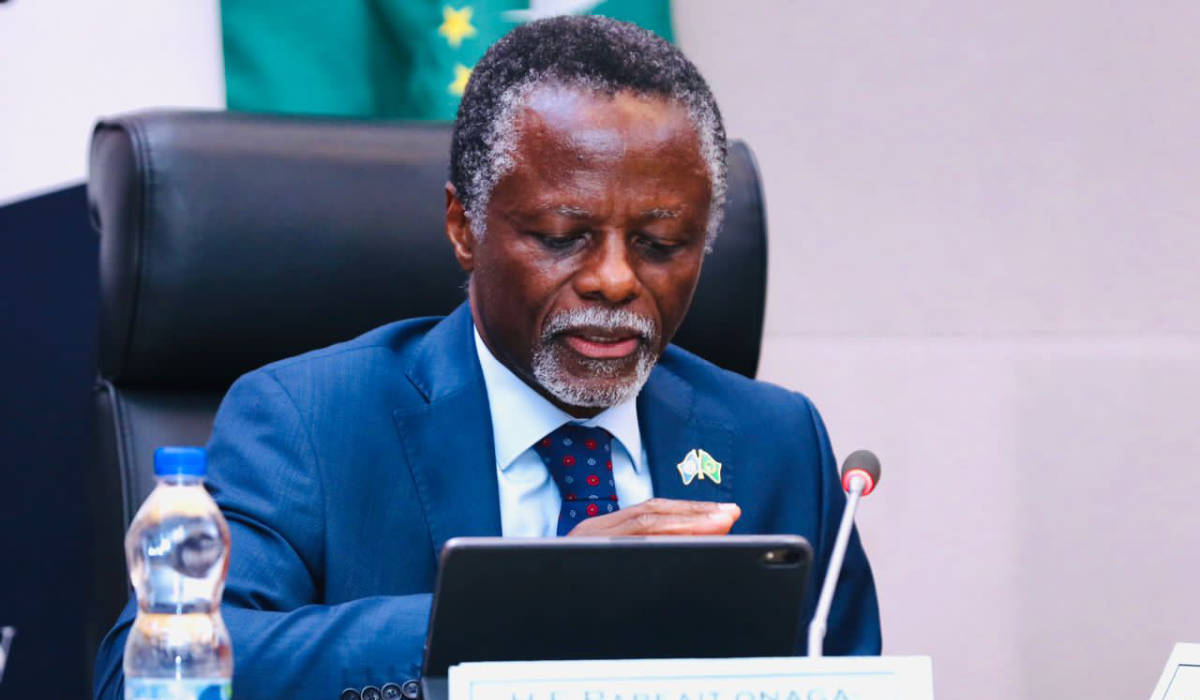Over the last decade, the global landscape of armed conflict as well as the dynamics on the ground have changed. Both the last report of the United Nations Secretary-General (UNSG) on Strengthening SSR in 2022, as well as his policy brief on a “New Agenda for Peace” in 2023, highlight the multifaceted and intertwined challenges we face in sustaining peace and security.
In addition to promoting peace and preventing conflict, it is also clear that there is a changing nature of armed conflict, with a stronger role for non-state armed groups, terrorist activities, intensified local and regional dynamics on the ground, as well as an increase in unconstitutional transitions. Security Sector Governance and Reform (SSG/R) should be a key element of the political processes of states emerging from conflict and of the strengthening of rule of law institutions. In this context, SSG/R should be addressed early on, as it plays a key role in different phases on the conflict cycle, including in peacebuilding and sustaining peace, but also related to conflict prevention, as well as the stabilisation and post-conflict reconstruction. SSG/R support should go beyond just conflict-related settings. SSG/R processes, support governments to develop representative, effective and accountable security sector governance institutions that emphasise the security and justice needs of the population and facilitate sustainable development.
A strong political leadership and a clear political will of national authorities are essential for the success of SSG/R processes
Tweet
However, this is not an easy process. It must deal with many challenges and sensitivities, as many actors are involved with different priorities and power struggles. The question is then how to address these challenges and sensitivities and how to provide optimal support to countries and the population? There are three principles that should guide this approach, based on the UNSG Report on Strengthening SSR, and the African Union (AU) SSR Policy Framework:
The foremost guiding principle is trust. This is the cornerstone of the security system. Robust security institutions hinge on integrity, accountability, and transparency. These elements are essential to create trust in national institutions. In addition, trust between governments and their people is necessary to have functioning societies.
The second guiding principle is national ownership. As the AU SSR policy framework also highlights, this entails national responsibility and commitment. It encompasses the allocation of human and financial resources. A strong political leadership and a clear political will of national authorities are essential for the success of SSG/R processes. Political buy-in, engagement and planning are also an integral part of larger peacebuilding and development strategies.
The third and last principle refers to inclusivity. This means giving greater attention to the security and justice needs of all people, women, children, men, and the youth. A people-centred approach to SSG/R is crucial for sustaining peace.
A people-centred approach to SSG/R is crucial for sustaining peace
Tweet
Bearing in mind the above-mentioned principles, is also vital to adopt a comprehensive approach and consider linkages to enhance synergy between various topics such as SSG/R, Disarmament, Demobilisation and re-integration (DDR), transitional justice, human rights, development or national reconciliation.
It is crucial for all of us to work jointly to achieve our shared goals. This is consistent with the United Nations – African Union Joint Framework for Enhanced Partnership in Peace and Security. Similarly, the UNSG Report on Strengthening SSR underlines the importance of partnerships with organisations such as the African Union. It is important to continue to incorporate SSG/R into these strategic partnerships. This is also true for the different flagship initiatives and programmes, including Agenda 2030 and Agenda 2063, the New Agenda for Peace, as well as the AU Roadmap to Silencing the Guns, the UN and AU SSR Policy Frameworks, the Post-Conflict Reconstruction and Development Policy (PCRD), and the African Peace and Security Architecture (APSA).
In the end, it is this holistic approach envisioned by the Secretary-General for next year’s Summit for the Future and our joint efforts that will contribute to sustainable peace and security as well as the advent of a fairer world for all.
Mr Parfait Onanga-Anyanga is the Special Representative of the Secretary-General to the African Union and Head of the United Nations Office to the African Union.
This article is an adaptation of remarks made at the Conference to mark the Ten-Year Implementation of the AU SSR Policy Framework in Addis Ababa, 21 November 2023.


